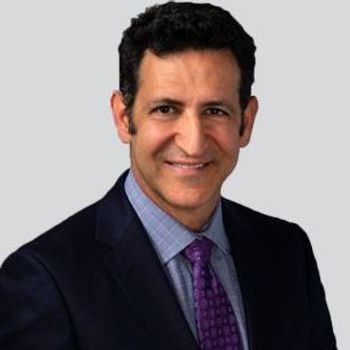
Investigators found no trends in amyloid-imaging abnormality rates based on centile tertile levels for lecanemab-treated patients.

Investigators found no trends in amyloid-imaging abnormality rates based on centile tertile levels for lecanemab-treated patients.

Patients treated with ALZ-801 showed improvements in cognition, reduced brain atrophy, and maintained dementia rating stages.

The professor of neurology at the NYU Grossman School of Medicine discussed a study presented at AAN 2024 highlighting the risks of cannabis use in patients with multiple sclerosis. [WATCH TIME: 4 minutes]

An analysis of a phase 3 trial of low sodium oxybate in patients with idiopathic hypersomnia identified a minimal clinically important difference in the visual analog scale for sleep inertia.
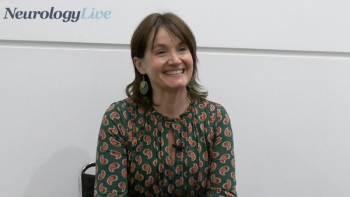
The associate professor of neurology at University of California, San Francisco talked about findings from an analysis that assessed the safety of ocrelizumab when administered close to pregnancy. [WATCH TIME: 5 minutes]

A phase 3b study showed that switching from intravenous C5 inhibitors to subcutaneous zilucoplan in patients with myasthenia gravis was associated with symptom improvement at 12 weeks.

Over 2, phase 3 studies, brexpiprazole-treated patients demonstrated greater response rates across various levels on the Cohen-Mansfield Agitation Index and Clinical Impression Scale-Improvement assessment.
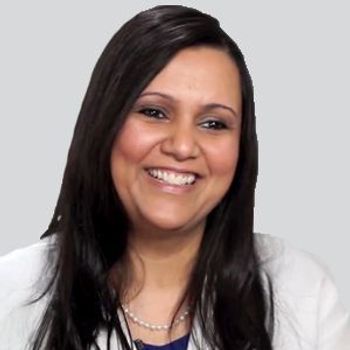
Combination of atogepant and ubrogepant resulted in minimal adverse events, and were safe and well-tolerated over a 12-week period.
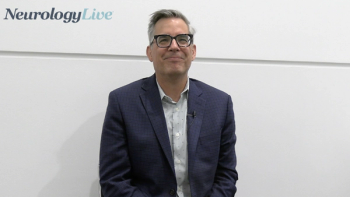
The executive vice president of research at National MS Society talked about the Dystel Prize which is presented at AAN to a recognized individual who promotes further advancements in understanding and treating MS. [WATCH TIME: 3 minutes]
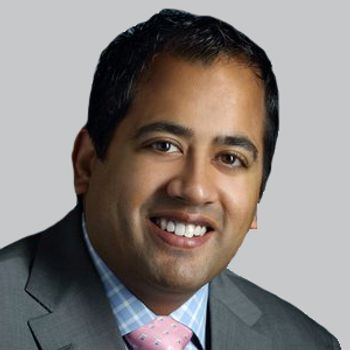
Results showed consistent reductions in monthly migraine days over 48 weeks, with a favorable safety profile observed.
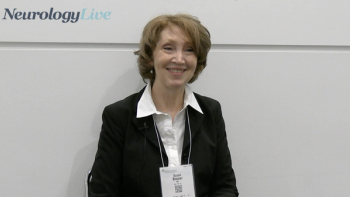
The medical director of the Weill Cornell Medicine Headache Program discussed key essential knowledge on the diagnosis, treatment, and pathophysiology of different headache types. [WATCH TIME: 6 minutes]
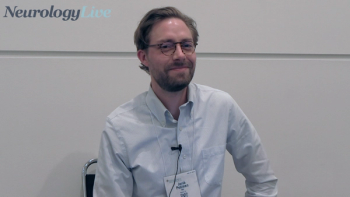
The assistant professor of neurology at University of Colorado School of Medicine discussed findings on the impact of cenobamate on hospital visits and emergency care for patients with drug-resistant epilepsy following surgery. [WATCH TIME: 3 minutes]
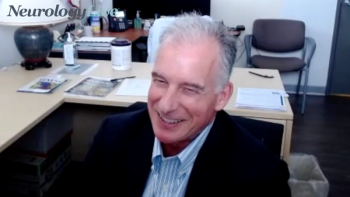
The director of the Allegheny Multiple Sclerosis Treatment Center at Allegheny General Hospital discussed exploring the potential role of BTK inhibitors and advanced MRI techniques to address smoldering multiple sclerosis. [WATCH TIME: 10 minutes]

Even at the highest modal dose range, findings from the phase 3 RISE-PD trial showed that IPX203 did not increase safety risks for patients with Parkinson disease over time.

New findings from the phase 3 PROOF-HD trial showed that pridopidine outperformed placebo up to 78 weeks in patients with Huntington disease even after excluding those on neuroleptics and antichorea medications.

Patients on riliprubart demonstrated improvements on several measures of disability and impairment, including the INCAT, I-RODS, MRC-SS, and grip strength.

Patients with first MS symptoms less than 3 years prior to enrollment saw greater long-term benefits with ublituximab than those with longer disease course.

In the phase 3 MOMENTUM and INTERCEPT studies, patients treated with AXS-07 saw reductions in headache pain freedom, most bothersome symptoms, and use of rescue medications.
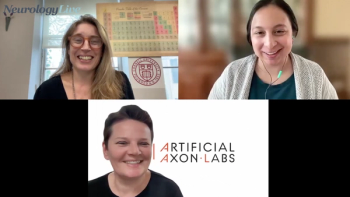
The professor of materials science and engineering at Cornell University and chief executive officer at Artificial Axon Labs talked about the development of artificial axons through 3D printing. [WATCH TIME: 6 minutes]
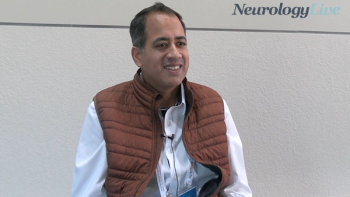
The professor of neurology at Johns Hopkins Medicine discussed the trial design of the phase 4 RENEW study assessing the long-term safety profile of mitoxantrone in multiple sclerosis. [WATCH TIME: 9 minutes]
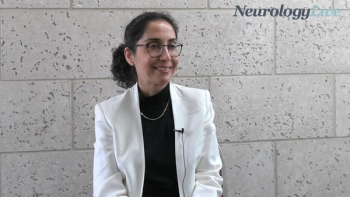
The assistant professor of neurology at Johns Hopkins Medicine talked about her preclinical research in immunology to explore the intricate mechanisms controlling chronic inflammation in the central nervous system. [WATCH TIME: 5 minutes]
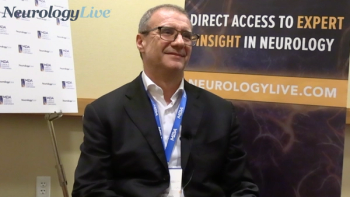
The executive medical lead at Italfarmaco SpA expressed his confidence in givinostat to mitigate the progression of Duchenne muscular dystrophy, emphasizing its multifactorial mechanism of action. [WATCH TIME: 5 minutes]

The professor of neurology at Johns Hopkins Medicine discussed the limited impact of current therapies on retinal atrophy rates in progressive multiple sclerosis at the 2024 ACTRIMS Forum. [WATCH TIME: 5 minutes]
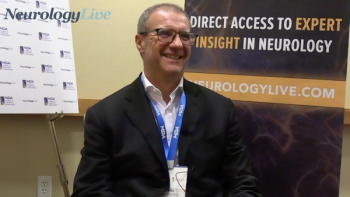
The executive medical lead at Italfarmaco SpA talked about data from both animal models and clinical trials supporting the efficacity of givinostat in patients with Duchenne muscular dystrophy at MDA 2024. [WATCH TIME: 5 minutes]
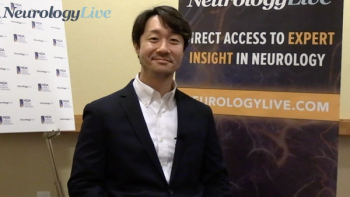
The chief executive officer at Elixirgen Therapeutics discussed the company’s mRNA as a promising therapeutic avenue for Duchenne muscular dystrophy. [WATCH TIME: 6 minutes]
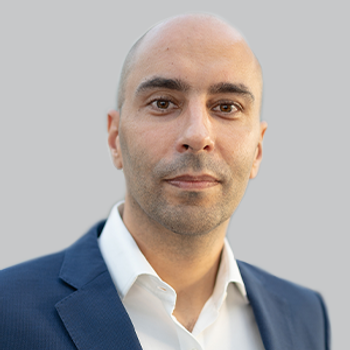
At AD/PD 2024, AC Immune SA presented an update on the company's phase 2 VacSYn trial assessing ACI-7104.056, an anti-α-synuclein active immunotherapy, for patients with Parkinson disease.
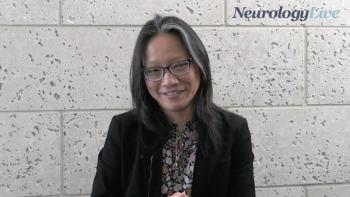
The director of the Multiple Sclerosis Program at the Cleveland Clinic’s Lou Ruvo Center for Brain Health discussed findings from a study that compared cognitive profiles between patients with multiple sclerosis and Alzheimer disease. [WATCH TIME: 5 minutes]
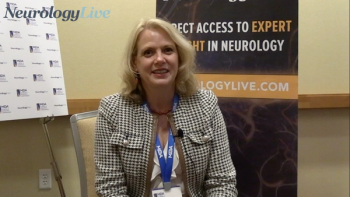
The professor of neurology at Vanderbilt University Medical Center discussed advocating for reinstating personalized resources, expanding genetic testing, and improving transitional care in muscular dystrophy. [WATCH TIME: 5 minutes]
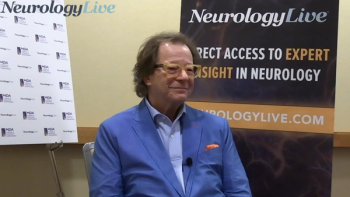
The president and chief executive officer of Satellos Bioscience provided an overview of the previously observed preclinical data supporting SAT-3247 as a potential therapy for muscular dystrophies. [WATCH TIME: 4 minutes]
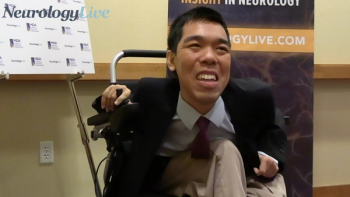
The second-year PhD student in bioinformatics at Boston University who lives with LAMA2 congenital muscular dystrophy talked about the potential impact and challenges of gene therapy in neuromuscular diseases. [WATCH TIME: 5 minutes]